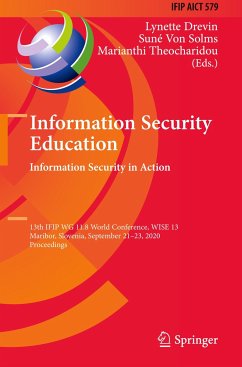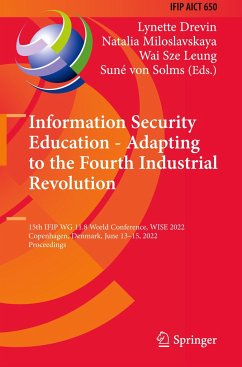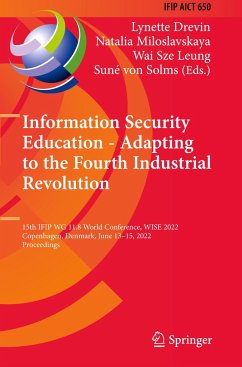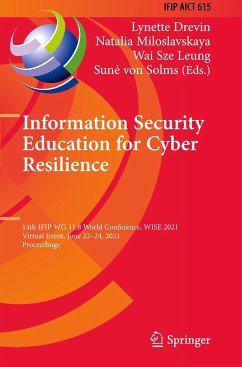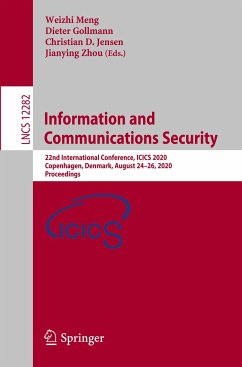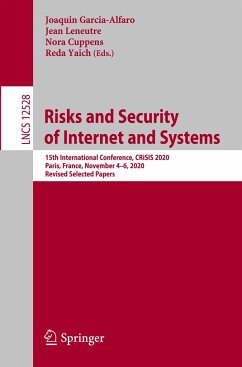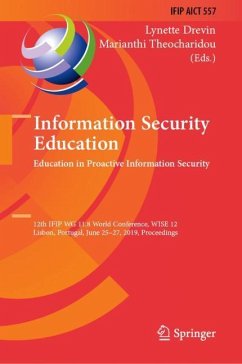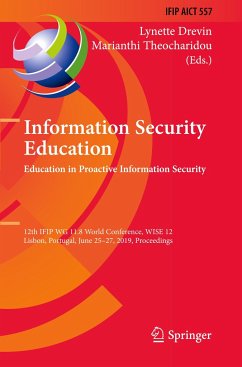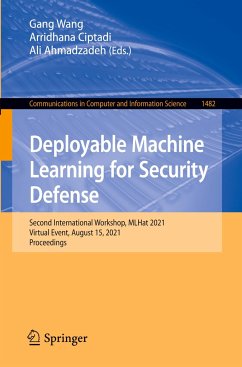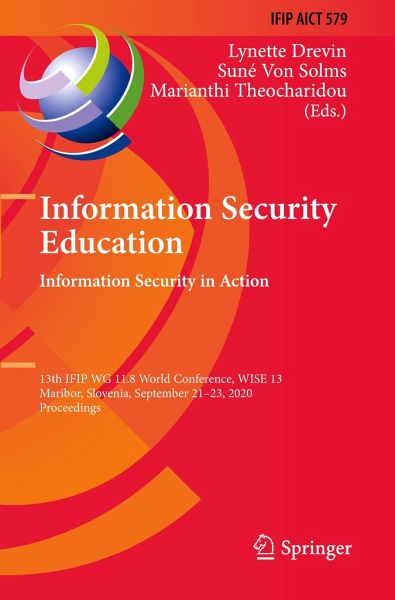
Information Security Education. Information Security in Action
13th IFIP WG 11.8 World Conference, WISE 13, Maribor, Slovenia, September 21-23, 2020, Proceedings
Herausgegeben: Drevin, Lynette; Von Solms, Suné; Theocharidou, Marianthi
Versandkostenfrei!
Versandfertig in 6-10 Tagen
38,99 €
inkl. MwSt.

PAYBACK Punkte
19 °P sammeln!
This book constitutes the refereed proceedings of the 13th IFIP WG 11.8 World Conference on Information Security Education, WISE 13, held in Maribor, Slovenia, in September 2020. The conference was held virtually due to the COVID-19 pandemic.
The 13 full papers presented were carefully reviewed and selected from 28 submissions. The papers are organized in the following topical sections: teaching methods and tools; cybersecurity knowledge within the organization; and teaching of detection and forensics.
The 13 full papers presented were carefully reviewed and selected from 28 submissions. The papers are organized in the following topical sections: teaching methods and tools; cybersecurity knowledge within the organization; and teaching of detection and forensics.





